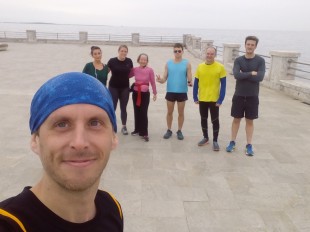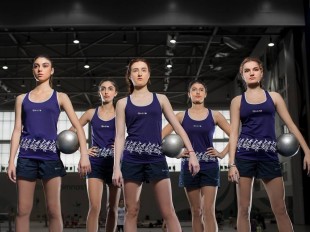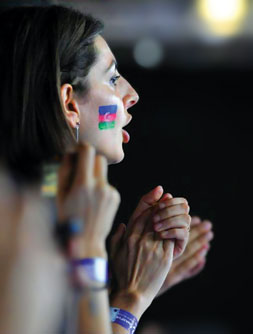 The year 2015 is eagerly awaited in Azerbaijan, where Baku is to host the inaugural European Games.
The year 2015 is eagerly awaited in Azerbaijan, where Baku is to host the inaugural European Games.Why so late?
The European Games is a regional version of the Summer Olympic Games held every four years. Europe is the last of the continents to hold its own Olympic tournament. The Central American and Caribbean Games have been organized since 1926, the Asian Games and Pan American Games since 1951, the All-Africa Games since 1965, the Central American Games since 1973, and the South American Games since 1978.
Victory in Rome
The decision to hold a European Games was finally taken on 8 December 2012 at the 41st General Assembly of the European Olympic Committee, held in Rome. The first European Games were entrusted to Baku, which was the only candidate city. Of course, it won’t be easy to organize such an important event for the first time, as there are no previous games to use as a model. However, last year’s Eurovision Song Contest showed that Baku is able to hold international events to a high level. The organization and hospitality in Baku impressed the competitors and fans as well as the TV audience.
State mobilized
The Azerbaijani government has moved swiftly on organization. Describing the Games as a ‘historic event’, President Ilham Aliyev issued an order on 17 January setting up an Organizing Committee. The committee is chaired by First Lady Mehriban Aliyeva, who also chaired the Eurovision Organizing Committee. The European Games Committee has 30 members, including ministers and Olympic champions. The committee has already held its first meeting and assigned initial tasks.
Seventeen sports
The First European Games will be held in June or July 2015, but the exact date has not yet been set. As with other regional games, such as the Pan American Games, the European Games will be held in a pre-Olympic year to give contestants the opportunity to prepare for the Olympics.
The European Games programme is to include at least 15 of the 28 Olympic sports and two non-Olympic sports. Archery, badminton, boxing, canoeing, fencing, handball, judo, rugby sevens, shooting, table tennis, taekwondo, triathlon and volleyball are Olympic sports that have already confirmed their interest in the Games. The likely non-Olympic sports to be featured are karate and dance sport.
The biggest absentee will be athletics, as the EAA, the European governing body, already have competitive commitments in 2015. Talks are continuing between the European Olympic Committees and European swimming’s governing body and it looks likely that swimming will be included in the Games.
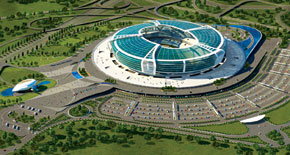 Why no football?
Why no football? You’ve probably spotted that football does not appear on the Games programme. The head of the International Relations Department of the Ministry of Youth and Sports and a member of the Baku-2015 Organizing Committee, Ilham Madatov, says that it just isn’t possible to include football, as the schedule does not allow sufficient time. Moreover, the Olympics and European Games are not able to compete with the World Cup and European Championships in terms of football prestige.
Giant stadium for Baku
Baku already has many of the facilities required for the Games. Competitions will be held at the Heydar Aliyev Sports and Concert Complex, the Tofig Bahramov Republican Stadium, the Baku Crystal Hall, the Sarhadhchi Sports Complex, the Palace of Hand Games, the 8th Kilometre Stadium, the Shafa Stadium and the Baku Expo Centre. Construction of the Baku Olympic Stadium, Aquatic Sports Centre and Gymnastics Complex are to be completed by 2015. The Games’ official opening and closing ceremonies are to be held in the new stadium, which will have a capacity of 65,000. Some 5,000 competitors and 1,000 officials are expected to take part in the Games, with around 2,000 journalists covering the event. The competitors will be accommodated in an Olympic Village and the journalists in a Media Village.
Medals
The medals to be presented at the European Games will be designed and produced by the National Olympic Committee of the host country, i.e. Azerbaijan. Designs are under consideration at present. Negotiations are under way with the appropriate organizations on broadcasting rights, while work is being done to attract international and local sponsors.
Benefits for Azerbaijan
The European Games will leave Baku a legacy of infrastructure improvements. Proposals are being drawn up to upgrade the transport system, provide security, optimize medical services, provide information and communication technology and design tourism and cultural programmes in Baku.
Minister of Youth and Sport Azad Rahimov has said that the Games will provide income of some 130 million euros:
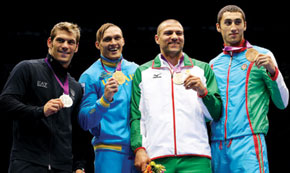 The income will be obtained from four sources. Payments from all the sponsors will remain in Azerbaijan. At the same time, the rights for branding and ticket sales are given to our country. These are expected to bring at least 100 million euros to our state budget. It is expected that that this amount will be about 120-130 million euros in all.
The income will be obtained from four sources. Payments from all the sponsors will remain in Azerbaijan. At the same time, the rights for branding and ticket sales are given to our country. These are expected to bring at least 100 million euros to our state budget. It is expected that that this amount will be about 120-130 million euros in all.Ilham Madatov of the Ministry of Youth and Sports and Baku-2015 Organizing Committee says that the benefits from holding the Games in Azerbaijan will not only be material:
Overall, the European Games are beneficial for Azerbaijan in five areas. First, this contest will make sport massive in our country. Second, the infrastructure will develop even further and new sports complexes will be built. Third, the European Games will help to make Azerbaijan more popular. It is a fact that Azerbaijan is not so well-known worldwide as France or England, but after the European Games people will have a better idea of our country. Fourth, this contest will contribute to the development of tourism. Finally, fifth, Azerbaijan will receive material income.
Five in one but this is not all. In 2015, Azerbaijan will also host the World Chess Cup and in 2016 it will host the Chess Olympiad and the U-17 European Football Championship.
Facts and Figures
1 – these will be the first ever European Games
15 – the number of Olympic sports in the competition
1,000 – the number of officials expected to participate in the European Games
2,000 – the number of journalists from round the world expected to cover the Games
5,000 – the number of competitors
65,000 – the capacity of the Baku Olympic Stadium where the opening and closing ceremonies will be held
130,000,000 – Azerbaijan’s expected income in euros from holding the European Games

